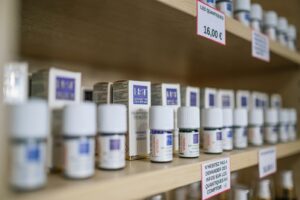Debunking Common Skincare Myths: 10 Myths About Skin Care
In the world of skincare, numerous myths and misconceptions can lead to confusion and ineffective routines. This article aims to debunk common skincare myths, promoting optimal skin health and informed choices.
Understanding Skincare Myths

Photo by Gratisography on Pexels
Skincare myths are prevalent and often hinder individuals from achieving healthy skin. By understanding these myths, we can separate fact from fiction, ensuring a comprehensive skincare regimen that caters to unique skin needs and concerns.
The Importance of Debunking Myths
Debunking common myths is essential for maintaining skin health. Misconceptions can lead to improper product usage, risking premature ageing and other skin issues. Knowledge empowers individuals to make informed decisions about their skincare products.
How Myths Affect Skincare Routines
Common skincare myths can significantly affect an individual’s skincare routine. Many may neglect essential products, like sunscreen or moisturizers, believing they are unnecessary, which can ultimately result in compromised skin health and increased skin concerns.
Common Misconceptions in Skincare
From the belief that oily skin doesn’t need moisturizer to the idea that sunscreen is only needed on sunny days, common misconceptions can misguide people in their pursuit of radiant skin. It’s crucial to address these myths for effective skincare.
Myth 1: Oily Skin Doesn’t Need Moisturizer

Photo by Angela Roma on Pexels
One of the most common skincare myths debunked is the notion that oily skin doesn’t require moisturizing. Understanding skin types and needs is vital for maintaining a balanced and effective skincare routine that promotes optimal skin health.
Understanding Skin Types and Needs
Each skin type has unique needs, including oily skin. Despite its oiliness, this skin type can still benefit from moisturizing to keep the skin barrier intact and prevent the production of excess oils.
Benefits of Moisturizing for Oily Skin
Moisturizing oily skin can help keep your skin hydrated, reducing the risk of breakouts and balancing oil production. Incorporating the right skincare products can lead to healthier skin and fewer skin issues over time.
Fact from Fiction: Moisturizers for Every Skin
It’s essential to recognize that moisturizers come in various forms, including those specifically designed for oily skin. Choosing the right formulation can effectively nourish your skin while addressing specific skin concerns.
Myth 2: Sunscreen is Only Necessary on Sunny Days

Photo by RF._.studio on Pexels
Another prevalent myth is that sunscreen is only necessary on sunny days. This misconception can increase the risk of skin cancer and damage from harmful UV rays, making it imperative to educate individuals on daily SPF usage.
The Importance of Daily SPF
Daily SPF is crucial for protecting your skin from harmful UV rays, regardless of the weather. Consistently applying sunscreen helps prevent premature ageing and maintains healthy skin, ensuring long-term skin health.
Understanding UV Rays and Skin Damage
Understanding the difference between UVA and UVB rays is essential for skincare. Both types can cause skin damage, contributing to skin cancer and premature ageing, reinforcing the importance of a consistent skincare regimen that includes sunscreen.
Choosing the Right Sunscreen for Your Skin Type
Selecting the right sunscreen for your skin type is essential for effective protection. Different formulations cater to specific skin concerns, ensuring that you can protect your skin while maintaining its natural beauty and health.
Myth 3: Natural Skincare Products are Always Better

Photo by PhotoMIX Company on Pexels
One prevalent myth is that natural skincare products are automatically superior. While natural ingredients can offer benefits, understanding the reality of skincare ingredients is essential to ensure effective skincare routines that meet specific skin needs.
The Reality of Skincare Ingredients
Not all natural ingredients are effective or suitable for every skin type. Some may even trigger adverse reactions, particularly for sensitive skin. Thus, it’s crucial to evaluate individual skin conditions when selecting skincare products, whether natural or synthetic.
Evidence-Based Skincare vs. DIY Remedies
Evidence-based skincare relies on scientific research to evaluate the efficacy of ingredients, whereas DIY remedies often lack thorough testing. This distinction is vital for separating fact from fiction and ensuring you choose products that genuinely benefit your skin health.
How to Evaluate Skincare Products
To effectively evaluate skincare products, consider their ingredient lists, research their benefits, and consult dermatologists if necessary. Understanding specific skin concerns will help you choose products that truly enhance your skincare regimen.
Myth 4: Pores Can Shrink

Photo by Gabriel Meinert on Unsplash
A common misconception is that pores can shrink, leading many to pursue ineffective treatments. Understanding pore size in relation to skin health is vital for maintaining a realistic approach to skincare and overall skin appearance.
Understanding Pore Size and Skin Health
Pore size is largely determined by genetics and skin type, and while it may appear smaller with proper skincare, pores cannot shrink permanently. A comprehensive skincare routine can help keep your skin clear and healthy.
How Skincare Products Affect Pores
Certain skincare products can minimize the appearance of pores by removing dead skin cells and preventing clogging. Ingredients like salicylic acid can help maintain a clear complexion, addressing common skin issues effectively.
Tips for Maintaining Healthy Pores
To maintain healthy pores, adopt a consistent skincare routine that includes cleansing, exfoliating, and moisturizing. Keeping your skin hydrated and removing dead skin cells regularly can prevent pore blockage and associated skin concerns.
Myth 5: Expensive Products are More Effective
The belief that expensive skincare products are more effective is another myth that can misguide consumers. Understanding skincare product efficacy is essential for making informed decisions about what truly benefits your skin.
Understanding Skincare Product Efficacy
Product efficacy depends more on the formulation and active ingredients than on price. Many affordable options contain highly effective formulas that can address specific skin concerns, proving that cost does not always equate to quality.
Debunking the Cost vs. Effectiveness Myth
By debunking the myth that high cost equals high effectiveness, consumers can explore a wider range of products. Identifying ingredients that provide optimal skin health allows you to select effective skincare without overspending.
Finding Quality Products within Your Budget
It’s possible to find quality skincare products within your budget by researching and reading reviews. Knowledge about ingredients and their benefits can guide you toward effective products that suit your unique skin needs.
Myth 6: You Don’t Need Skincare if You’re Young

Photo by Matheus Henrin on Pexels
Many young adults believe they don’t need a skincare routine, but this myth can lead to long-term skin concerns. Building a skincare routine early is crucial for maintaining healthy skin and preventing premature ageing.
Building a Skincare Routine Early
Establishing a skincare routine in your youth can help maintain optimal skin health. Incorporating basic products like sunscreen and moisturizers lays the foundation for a lifetime of healthy skin and addresses unique skin concerns early on.
Long-Term Benefits of Early Skincare
Starting an effective skincare routine early can yield significant long-term benefits. It helps in preventing premature ageing, reducing the risk of skin cancer, and maintaining a radiant complexion throughout life.
Common Skin Issues in Young Adults
Young adults often face specific skin issues, such as acne and sensitivity. Addressing these concerns through a consistent skincare regimen is vital for achieving clear and healthy skin that endures through the ages.
Myth 7: All Skin Issues are Genetic

Photo by National Cancer Institute on Unsplash
External Factors that Affect Skin Health
While genetics play a significant role in skin conditions, external factors such as pollution, diet, and lifestyle choices can greatly affect skin health. Addressing these influences is crucial for maintaining optimal skin health.
Identifying Skincare Concerns Beyond Genetics
Many skincare concerns, such as acne and dryness, can stem from environmental triggers rather than genetics alone. Understanding the interplay between genetics and external factors can help individuals tailor their skincare routine effectively.
Holistic Approaches to Skin Health
Adopting a holistic approach to skin health involves considering both internal and external influences. This comprehensive skincare regimen can help mitigate skin issues and promote a radiant complexion through balanced living.
Myth 8: Skincare is a One-Size-Fits-All

Photo by Alexas_Fotos on Pixabay
Understanding Individual Skin Needs
Every individual’s skin type is unique, necessitating customized skincare routines. Recognizing your specific skin needs is vital for selecting the right products that effectively address your skincare concerns and enhance skin health.
Customizing Your Skincare Routine
Customizing a skincare routine involves selecting products that cater to your skin type and concerns, ensuring effective results. Tailoring your regimen can help keep your skin hydrated and prevent common skin issues.
Consulting Professionals for Tailored Advice
Consulting a dermatologist can provide personalized insights into your skincare regimen. Professional advice can help you navigate the myriad of products on the market and debunk common skincare myths specific to your skin type.
Myth 9: You Can Get Rid of Acne Overnight

Photo by bruce mars on Unsplash
Understanding Acne Treatment Timelines
Acne treatment requires time and patience, as skin healing is a gradual process. Understanding that overnight solutions rarely exist can help individuals manage expectations and avoid frustration with their skincare journey.
Effective Ingredients for Acne Management
Incorporating effective ingredients like salicylic acid and benzoyl peroxide into your skincare routine can significantly improve acne management. These components address underlying skin issues and promote clearer skin over time.
Long-Term Strategies for Clear Skin
Long-term strategies for maintaining clear skin include a consistent skincare routine, avoiding irritants, and regularly removing dead skin cells. Developing these habits can lead to improved skin health and fewer flare-ups.
Myth 10: The More Products You Use, the Better

Photo by Conscious Design on Unsplash
Building an Effective Skincare Routine
Building an effective skincare routine focuses on quality over quantity. Using a few well-chosen skincare products can be more beneficial than layering numerous products that may overwhelm your skin and cause issues.
Quality vs. Quantity in Skincare
The effectiveness of skincare products is often determined by their quality rather than the number of products used. A streamlined skincare regimen can address specific skin concerns while maintaining healthy skin without excess.
Finding Balance in Your Skincare Regimen
Finding balance in your skincare regimen is essential for optimal skin health. Prioritizing the right products that meet your unique skin needs can create a sustainable routine that supports your overall skin condition.
What are some common skincare myths that people believe?
Many individuals unknowingly fall prey to common skincare myths that can hinder their skin health journey. For instance, a prevalent myth is that oily skin does not require moisturizer. In reality, even oily skin needs hydration to maintain a healthy balance. Another myth is that you can skip sunscreen on cloudy days; UV rays can still penetrate clouds, so protecting your skin is essential every day. It’s crucial to stay informed and recognize these myths and misconceptions to achieve radiant skin.
How can I effectively debunk these skincare myths?
The best way to debunk skincare myths is through education and consultation with a qualified dermatologist. Research credible sources that provide evidence-based information. By seeking out expert opinions, you can separate fact from fiction. Additionally, staying updated on the latest skincare research can help you identify which practices are truly beneficial for your unique skin.
What should I include in my skincare routine to combat skin concerns?
A comprehensive skincare routine tailored to your specific skin concerns is key to achieving optimal results. Start with a gentle cleanser to remove dirt and impurities, followed by an exfoliant to assist in removing dead skin cells and promoting cell turnover. Incorporate serums packed with natural ingredients that target your specific issues, and always finish with a broad-spectrum sunscreen to protect against harmful UV rays. Consistency is vital; adhere to your routine to see lasting improvements.
Is it true that skin type determines the effectiveness of skincare products?
Absolutely! Understanding your skin type is crucial for selecting the right skincare products. Each skin type—be it oily, dry, combination, or sensitive—has different needs. For instance, individuals with dry skin should seek hydrating ingredients, while those with oily skin might benefit from non-comedogenic products. Tailoring your skincare regimen to your unique skin can significantly enhance skin health and address specific issues effectively.
What are the risks of not using sunscreen?
Failing to use sunscreen can lead to a variety of skin issues and health concerns, including:
1. Skin Cancer: One of the most serious risks associated with not using sunscreen is an increased likelihood of developing skin cancer, including melanoma, basal cell carcinoma, and squamous cell carcinoma. UV radiation from the sun is a significant risk factor for these cancers.
2. Premature Aging: UV exposure can accelerate the aging process of the skin, leading to wrinkles, fine lines, and age spots. This condition, often referred to as photoaging, can make the skin appear older than it actually is.
3. Sunburn: Without sunscreen, the skin is more susceptible to sunburn, which can be painful and damaging. Repeated sunburns can lead to long-term skin damage and increase the risk of skin cancer.
4. Hyperpigmentation: Excessive sun exposure can cause dark patches or spots on the skin, known as hyperpigmentation. This condition can be difficult to treat and can affect the overall appearance of the skin.
5. Immune Suppression: Prolonged exposure to UV radiation can suppress the local immune response in the skin, making it harder for the body to fight off certain infections and diseases.
6. Eye Damage: Not using sunscreen on areas like the eyelids can increase the risk of developing cataracts and other eye-related issues due to UV exposure.
7. Heat Rash: Increased sun exposure without protection can lead to heat rash, a condition that occurs when sweat ducts become blocked, causing discomfort and irritation.
To mitigate these risks, it is essential to apply a broad-spectrum sunscreen with an SPF of at least 30, reapply every two hours, and take additional sun protection measures, such as wearing protective clothing and seeking shade during peak sun hours.


